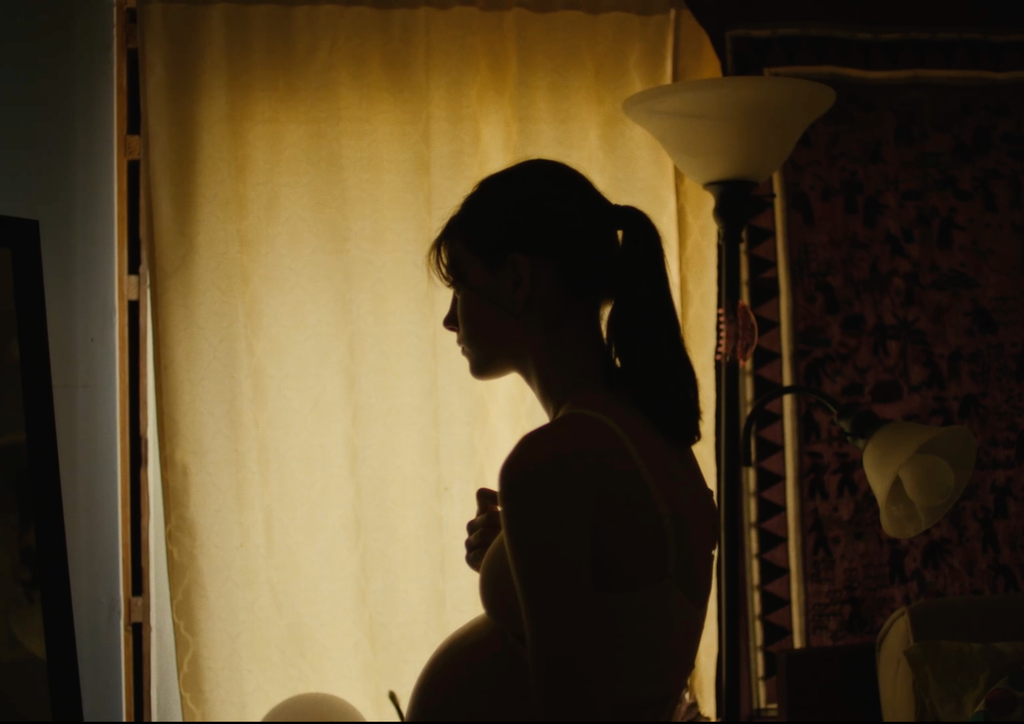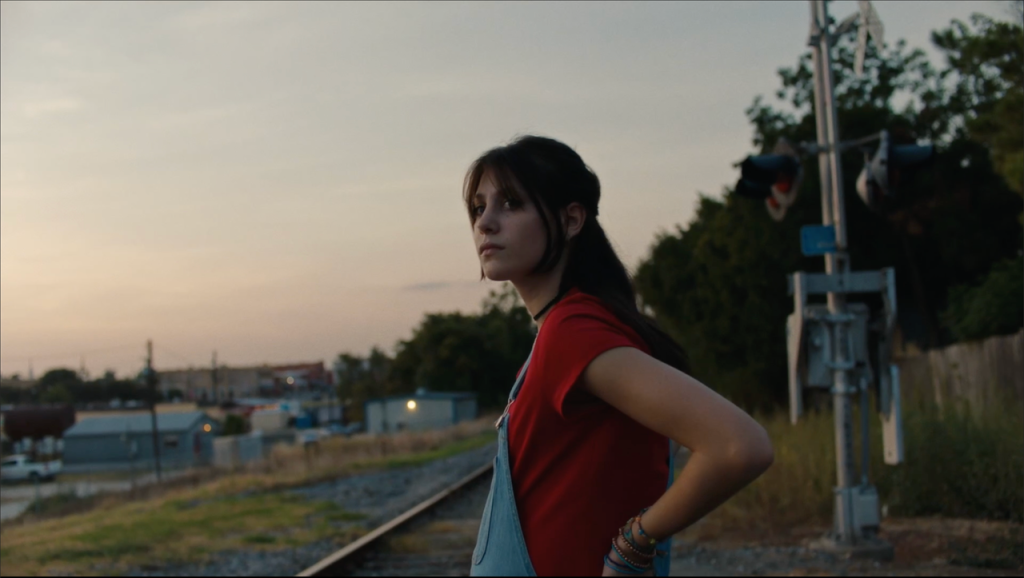Ellen Rodnianski proves she is a filmmaker to watch after her directorial debut, American Baby. In a politically charged film that is neither preachy nor passive, she weaves an intricate story. It is one of identity caught in the crosshairs of immigration. It is a succinctly modern American story that offers a charming lead and a poignant story. For her debut, she brings an authentic, astute voice.
American Baby is told through compelling nonlinear storytelling. We weave back and forth through specific moments in our lead character’s life. It is a story of judgment, set in our politically charged times. We follow a pregnant teenager as she navigates her pregnancy in a small Texas town. Oli (Abigail Pniowsky), we find at the start of the film, is on the outs with her mother, who is ashamed of her daughter’s teen pregnancy. We see the lengths of the humiliation on full display when she forces Oli to walk to school, sporting her very pregnant belly.

It is that image of Oli’s pregnancy that Rodnianski chooses to start the film. As Oli is looking at her belly in the mirror, we hear in the background radio reports of the war in Ukraine. This scene is clever, frames the story’s timeline, and establishes that Oli and her mother are Ukrainian immigrants. Further, after the church takes them in, there is a moral obligation to follow the ministry’s teaching in response to the hospitality and acceptance offered by war-torn Ukraine.
We see that despite being an immigrant, Oli is much more like her fellow teens than her mother would like to see. Further, we see through flashbacks the peer-pressure of her much older and sexually awakened friend Miriam (Claire Capek). Miriam encourages Oli to pursue the boy she likes, and at a party, she hooks up with Toby (Elisha Henig). In a similar situation to Oli’s, he is also the child of immigrants. Their quasi-rebellion and rejection of the norms imposed by their parents offer an interesting parallel to the integration of immigrants, particularly teens, into the American story.

After her night with Toby, Oli becomes pregnant, and her life changes in an instant. Not only does Toby suddenly disappear from her life, but she also faces growing isolation from the community that welcomed her and her mother. The story imbues a sense of isolation from the start, with Oli standing alone, looking at herself in the mirror.
However, the more compelling angle the story focuses on is the scorn and outright rejection Oli faces both from her mother and the community. The choice to set the film in Texas is far from coincidental. The fact that Texas has some of the strictest abortion laws in the country adds additional pressure to Oli, on top of already feeling like an outsider in a small and deeply religious town. Yet the film transcends the conventional political divide and keeps the story focused entirely on Oli.
There is never a clear-cut decision about what Oli is looking to do regarding her pregnancy. The film presents her weighing her options, even as she faces persecution that is no doubt doubled by the fact that she is an immigrant. It is one part of the script and one part of the strength of Pniowsky’s performance. She is the film’s emotional backbone. We see both her fear and joy rolled together as she navigates a tinderbox situation unfolding both internally and externally. What could have been a one-note performance becomes increasingly raw, ultimately culminating in the film’s climax.

In many ways, this young woman embodies the American spirit: self-reliance (literally) and true grit. Pniowsky is a revelation to keep an eye on as her career progresses. American Baby shows she has the chops.
Interestingly, when focusing on the responses from school leaders and community members, the portrayal is never a caricature. Rodnianski explores the humanity of this small town, even as it is seen through Oli’s eyes. The story works on two levels: it showcases the community as a place of faith and purpose while also highlighting an inherent contradiction. Oli becomes a social pariah.
The story comments on the failures of a system and its hypocrisy. Oli, through her isolation, has no one to turn to, and echoes the situation of countless women forced to confront pregnancy alone. Further, there is the moral quandary of a devoutly religious community turning its back on a member who steps outside its perceived norms. She successfully tells a story of identity and acceptance. American Baby showcases a rising talent who tells a provocative tale that never settles for cheap tricks or inflammatory tactics. The ultimate strength lies in the validity of the expression. She manages to communicate not only where women and immigrants find themselves at this moment, but also where America is at this moment.
The moment that remains from this film comes at the beginning. We first meet Oli, who is staring at her pregnant belly while a news report plays in the background. Not only is it a well-constructed shot that establishes our lead character and the predicament of her story, but it also conveys both political and emotional resonance without a single word of dialogue.
Take a bow, Ms. Rodnianski. This is the start of a long and illustrious career.
American Baby played at the 2025 Austin Film Festival, where it won the Audience Award for Best Narrative Feature. The film will next play at the Cucalorus Film Festival on November 22, 2025.
Director: Ellen Rodnianski
Writers: Tanya Leonova, Ellen Rodnianski
Rated: NR
Runtime: 85m
American Baby showcases a rising talent who tells a provocative tale that never settles for cheap tricks or inflammatory tactics. The ultimate strength lies in the validity of the expression.
-
8
-
User Ratings (0 Votes)
0

Writing & podcasting, for the love of movies.
His Letterboxd Favorites: The Dark Knight, Halloween, Jaws & A Christmas Story.






